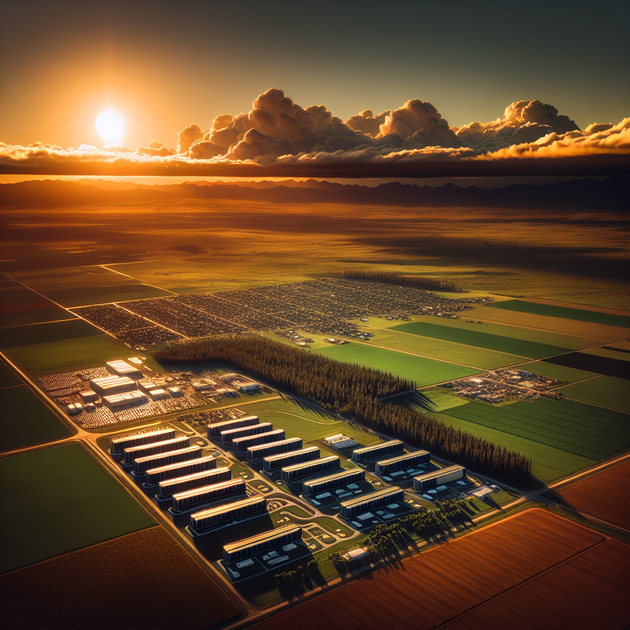Why Does It Feel Like AI and Billionaires Are Squeezing Us?
Ever notice how all the hype around artificial intelligence leaves out something big? Sure, we get stories about smarter computers and magical breakthroughs. But beneath all that shiny tech talk is a simple fact: AI eats up real-world resources—water, electricity, even huge chunks of land—and it’s regular people who end up paying for it. Meanwhile, billionaires quietly buy up farmland while everyone’s distracted by the next app or robot dog.
How Data Centers Devour Water and Power
AI doesn’t run on thin air. Those “smart” algorithms need massive data centers—think football fields of servers that never sleep. These digital factories:
- Use enormous amounts of electricity from the same grid that powers our homes
- Pull millions of gallons of water to keep their servers cool
- Take up land that could’ve been housing or farmland
- Drive up costs for everyone else when demand spikes
- Rarely give back to local communities in meaningful ways
What does this mean for you? Rising utility bills. Strained water supplies during droughts. And less say in how our neighborhoods grow or change.
Billionaire Land Buys: The Quiet Grab for Food (and Power)
While data centers slurp up resources in cities and suburbs, something else is happening out in the country. When farmers get hit with tariffs or bad markets—and can’t sell their crops—land values drop. Enter the billionaires.
They buy up these struggling farms at bargain prices. Suddenly some of America’s richest own not just tech companies but also enormous pieces of farmland. That means control over what gets planted (or not), who gets to farm it (if anyone), and even what food ends up in stores.
The Real-World Impact on Everyday People
Stories about “innovation” usually skip over who pays the price along the way. Here’s what’s really going on:
- Utility bills rise as data centers compete for energy
- Water shortages become more common in towns near server farms
- Small farmers lose out as billionaire investors grab cheap land
- Food supply gets concentrated in fewer hands
- Politicians argue while regular families feel squeezed from both sides
It can feel like no matter how hard you work or budget, you’re still footing someone else’s bill—while they build a digital empire on your dime.
A Story From America’s Heartland
A friend of mine grew up on a small family farm in Iowa. For years they did everything right—rotating crops, investing in efficient irrigation—but when commodity prices crashed after new tariffs hit exports… well, things changed fast. Their harvest sat unsold in silos while bills stacked up.
Eventually they had to sell off part of their land just to stay afloat. The buyer? Not another farmer—but a quiet investment group with ties to a well-known billionaire tech founder. Now my friend rents back fields his family once owned from a faceless corporation headquartered on another coast.
Suddenly it wasn’t his land—or his future—to decide anymore.
So Who Really Benefits From All This Progress?
AI promises progress but rarely admits what it takes from us along the way—water we drink; power we use; ground under our feet; food on our tables. Billionaires scoop up assets while politicians pass blame around like a hot potato.
Farmers aren’t your enemy here—they’re caught in the middle too. Maybe betrayal is coming from higher up than most folks realize.
So here’s what keeps me up at night: If regular people are always paying for “progress,” when do we finally get a say in where it leads? What do you think—is there a way forward where we all win?

Leave a Reply